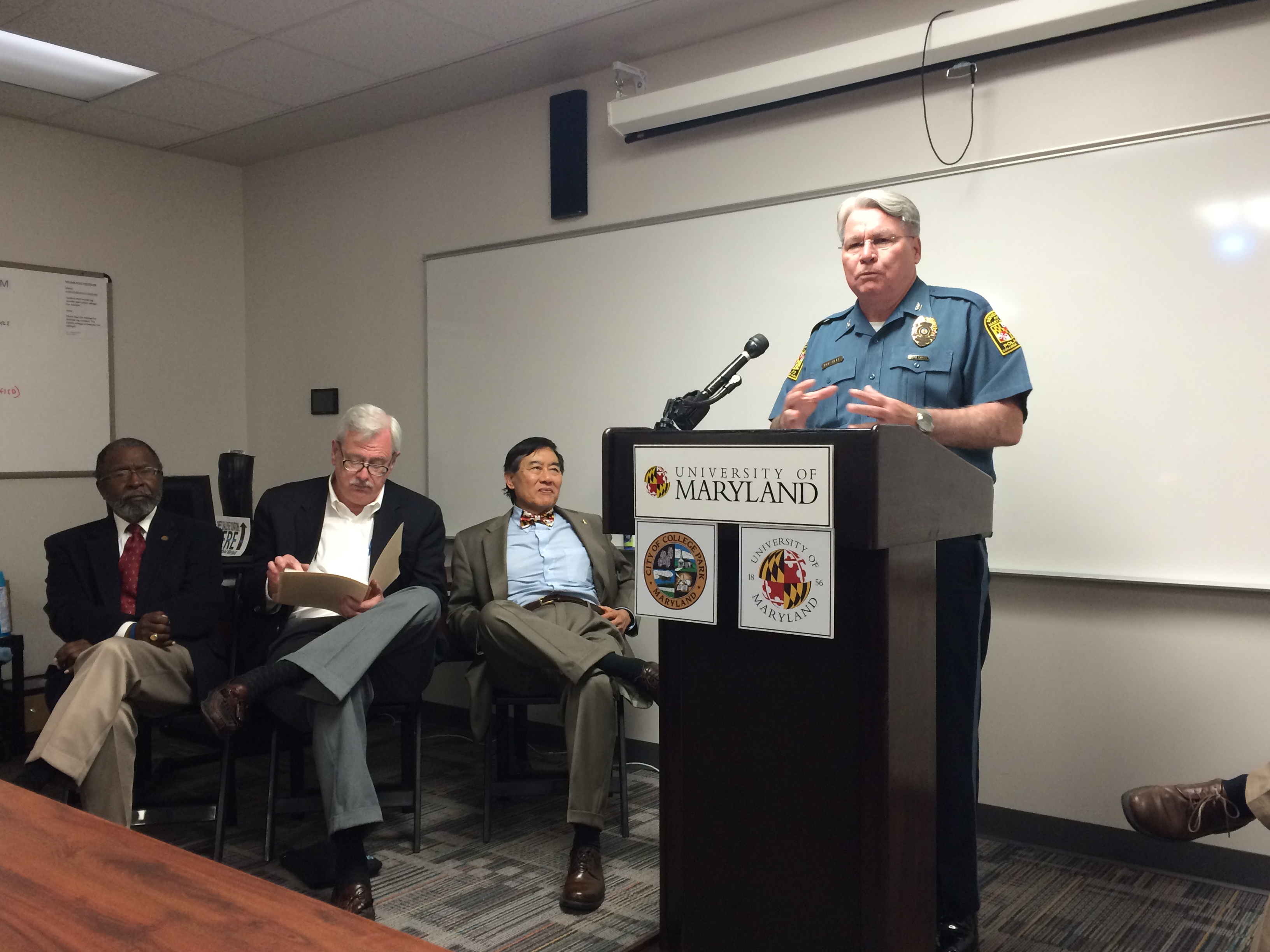Nearly six months after the launch of the University of Maryland and City of College Park Safety Ambassador Program, the joint initiative has expanded and received positive feedback from both the university and city communities.
In May, university and city officials announced the initiative, which is a collaboration between the university, the city and the College Park City-University Partnership. The program focuses on improving the city’s safety, as well as the overall presence of the University of Maryland Police, said University Police Chief David Mitchell.
“The perception of safety in the world right now is danger,” Mitchell said. “Despite the fact that our campus is very safe, sometimes there are perceptions that isn’t so. If there’s one thing we can do … is to have a visible presence.”
Since its launch, the College Park Safety Ambassador Program has increased its number of ambassadors, hours and shifts, as well as its overall area coverage, according to a CPCUP news release. At first there were just six safety ambassadors, according to a Diamondback article, but the program has expanded to 15 safety ambassadors. Eight of them are a mix of undergraduate and graduate students from this university, with the other seven being residents from the community, said Eric Olson, CPCUP’s executive director.
One of the city’s first safety ambassadors, Natalie Lutz, a 2015 graduate in criminology from this university, said she’s enjoyed working alongside both students and residents in the program.
“The students are a little more transient; we have been able to inform them about the services that the department provides, like escorts, and just giving them directions — things of that nature,” Lutz said. “Being able to speak with residents is great. We can hear about their concerns, what they know about the community, because they’ve been here for years. … It’s two-fold.”
Lutz also said she views herself “as a liaison between the community and the department,” and that the ambassadors are a way of “letting the community know that, ‘Hey we’re here and we care about you.'”
Since launching six months ago, these ambassadors have reported 10 hazards to University Police, according to a CPCUP news release reporting data from May to September of this year. These hazards could be anything from a low-hanging wire to a water main break, Mitchell said. Moreover, the ambassadors conducted six walking escorts during this time period, which usually involve individuals asking for directions, Mitchell added.
The ambassadors have a strong presence in the downtown area of the city, Mitchell said, which is where a lot of their interactions with students and other residents occur. Between May and September of this year there have been 1,223 neighborhood and shopping checks, according to the new release. These checks are for any sort of “disturbances,” “obstructions” and/or “safety hazards,” Mitchell said.
“The business community has given enormously positive feedback,” Mitchell said. “How much they appreciate the fact that we’re there. It’s very positive that they see us, and sometimes they say, ‘We wish you had been here long ago.’ We’re filling a need just for a presence in [that area].”
College Park Mayor Patrick Wojahn said the ambassadors are doing a great job and the community is responding well to the increased safety presence. Wojahn said additional eyes and ears from the police department are helpful, especially during special events that involve large crowds.
“I think it’s important,” Wojahn said. “Because our downtown area gets pretty crowded especially with football and basketball games and other celebrating downtown, and it’s really helpful with the crowds.”
This feeling of safety and police presence is imperative for the community’s overall wellbeing, Olson said.
“They are very visible in the community, they’re identifying hazards and helping people and are serving as eyes and ears in the College Park community,” Olson said. “I think they’re doing a terrific job.”




